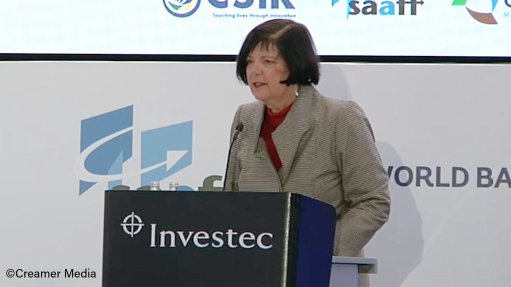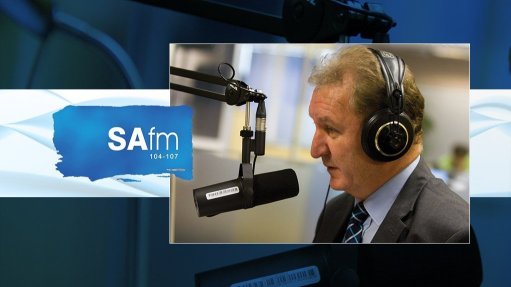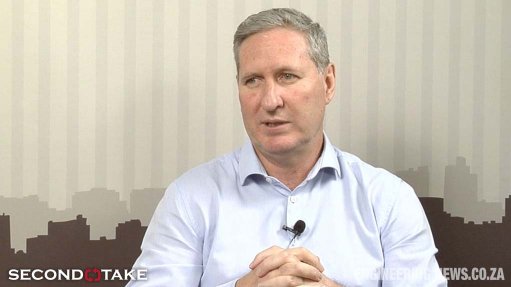London calling for those skilled in trade remedies
As the UK starts to prepare itself for 22:00 on March 29, 2019 – the time and date when it will officially leave the European Union (EU) – it is contemplating taking over a number of EU trade competences, also referred to as trade responsibilities. Arguably the most important of these is ‘trade remedies’, the collective name for dumping and countervailing (antisubsidy) duties, as well as safeguards.
Two of the trade remedies are considered to be unfair trade remedies and the last a fair-trade remedy. Do you still know which is which? Safeguards are the fair-trade remedy.
On May 10, the Department for Interna- tional Trade (DIT) announced it was seeking to appoint a chairperson for the Trade Remedies Authority, stating that the deadline for applications was June 7, at 12:00. The successful applicant is expected to be announced in the summer and the DIT will shortly embark on the process to appoint staff for the authority.
The DIT will be set up as a nondepartmental public body. It will be responsible for conducting trade remedies investigations under a statutory framework and will make recommendations to the Secretary of State on how the UK should use trade remedies to mitigate and remove the material injury suffered by UK producers as a result of dumped or subsidised imports or in the event of imports into the UK surging. The authority will also be responsible for providing support and assistance to the DIT on trade.
The DIT is seeking individuals with experience in setting up public bodies, preferably those with knowledge of international trade. The chairperson will be responsible for delivering the UK government’s commitment to ensuring that the authority is able to investigate and recommend trade remedies measures by the time the UK leaves the EU. The chairperson will play a leading role in a number of critical areas, including developing the authority’s corporate governance structures and its strategic vision. He or she will also be responsible for overseeing the authority’s relationship with the Secretary of State for International Trade and the DIT.
The chairperson will play a leading role in the formation of the authority, including working with the DIT to develop its governance frameworks, developing a strategic vision and providing input into staffing and resource allocation. He or she will formally appoint executive members to the authority’s board and be consulted on the appointment of nonexecutive members to the authority by the Secretary of State for International Trade. The chairperson’s other responsibilities include determining remuneration and terms and conditions for executive members and, following the authority’s establishment, providing effective leadership and strategic direction to form a cohesive and focused board that is able to ensure that the authority fulfils its statutory duties and functions. Further, he or she will be required to enable the board to exercise its functions in a consistent, proportionate and fair manner – bearing in mind the economic conditions in all parts of the UK. In this regard, he or she must pay particular attention to the need to set up the authority in a way that ensures it operates objectively across the whole of the UK. Working with the board, the chairperson must ensure that the authority maintains its operational independence, impartiality and expertise to deliver its mandate and meet the UK’s obligations under World Trade Organisation agreements. The chairperson will act as the public face of the organisation, alongside the CEO, and will be required to develop and maintain effective relationships with the devolved administrations, all exter- nal stakeholders and the public. External stakeholders may include relevant Parliamen- tary bodies, international industries, the UK manufacturing industry and other UK producers, consumer groups, trade associations and trade unions, where appropriate.
In terms of experience, the successful candidate must have a good understanding of or be willing to understand the decision-making processes within public-sector organisations, must have gained commercial experience in a trade-focused environment and must understand cross-sector dynamics and supply chain complexities. The appointment of the chairperson is subject to the establishment of the authority, which is being legislated for by the UK government’s Trade Bill.
If you have trade remedies skills, London is calling, or, rather, Reading, where the position is based.
Comments
Announcements
What's On
Subscribe to improve your user experience...
Option 1 (equivalent of R125 a month):
Receive a weekly copy of Creamer Media's Engineering News & Mining Weekly magazine
(print copy for those in South Africa and e-magazine for those outside of South Africa)
Receive daily email newsletters
Access to full search results
Access archive of magazine back copies
Access to Projects in Progress
Access to ONE Research Report of your choice in PDF format
Option 2 (equivalent of R375 a month):
All benefits from Option 1
PLUS
Access to Creamer Media's Research Channel Africa for ALL Research Reports, in PDF format, on various industrial and mining sectors
including Electricity; Water; Energy Transition; Hydrogen; Roads, Rail and Ports; Coal; Gold; Platinum; Battery Metals; etc.
Already a subscriber?
Forgotten your password?
Receive weekly copy of Creamer Media's Engineering News & Mining Weekly magazine (print copy for those in South Africa and e-magazine for those outside of South Africa)
➕
Recieve daily email newsletters
➕
Access to full search results
➕
Access archive of magazine back copies
➕
Access to Projects in Progress
➕
Access to ONE Research Report of your choice in PDF format
RESEARCH CHANNEL AFRICA
R4500 (equivalent of R375 a month)
SUBSCRIBEAll benefits from Option 1
➕
Access to Creamer Media's Research Channel Africa for ALL Research Reports on various industrial and mining sectors, in PDF format, including on:
Electricity
➕
Water
➕
Energy Transition
➕
Hydrogen
➕
Roads, Rail and Ports
➕
Coal
➕
Gold
➕
Platinum
➕
Battery Metals
➕
etc.
Receive all benefits from Option 1 or Option 2 delivered to numerous people at your company
➕
Multiple User names and Passwords for simultaneous log-ins
➕
Intranet integration access to all in your organisation
















